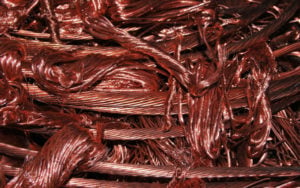Ambassador Cong Peiwu:Crackdown on Chinese Investment in Canada Mining Is Wrong

Chinese Ambassador to Canada, Cong Peiwu, stated in an interview on Wednesday that while the Canadian government’s suppression of foreign investment is “unfortunate,” China will continue to conduct business with key mining industries in Canada. As one of the world’s most important mineral resource countries, mineral producers, and mineral exporters, in recent years, Canada has continuously tightened its foreign investment control in the critical mineral sector.
Cong stated that the Canadian government’s practice of preventing Chinese investors from acquiring a majority stake in domestic mining companies is “wrong.” He said that politicizing normal business cooperation and using national security as an excuse for political intervention is not right, and China has expressed strong opposition to this. Nevertheless, China will continue to conduct business on the basis of mutual respect and mutual benefit.
Just last week, Canadian Minister of Natural Resources Jonathan Wilkinson warned domestic mining companies that Chinese stakes will face strict national security reviews.
In March 2021, the Canadian government released a list of 31 critical mineral resources, including aluminum, cobalt, copper, graphite, lithium, rare earth elements, and uranium. These critical minerals are crucial materials for electric vehicles, solar panels, and wind turbines. However, countries like Canada and the United States are actively building their own supply chains to reduce dependence on China.
In October 2022, the Canadian government issued the “Policy Regarding Foreign Investments from State-Owned Enterprises in Critical Minerals under the Investment Canada Act,” which imposes stricter regulations on foreign investment reviews in Canada’s critical mineral industry. In November of the same year, the Canadian Department of Innovation, Science and Economic Development issued a notice requiring three Chinese lithium mining companies—China Minmetals, Shengxin Lithium Energy, and Zangge Mining—to divest or withdraw their equity investments in Canadian lithium mining companies within 90 days.
However, this does not seem to have stopped Chinese capital from investing in Canadian mining, especially in critical minerals. Just this year, Chinese companies have frequently invested in Canadian mining. For example, Zijin Mining initiated a plan to acquire a 15% stake in Canadian copper mining company Solaris Resources Inc. (TSX:SLS), Ganfeng Lithium acquired a 15% stake in Vancouver lithium mining company Lithium Americas Corp. (TSX:LAC) (NYSE:LAC), and Yintai Gold agreed to acquire gold exploration company Osino Resources for CAD 368 million (USD 271 million).
Unnamed Canadian officials revealed to the media that they will closely monitor these transactions and will consider whether it is necessary to take further steps beyond the current national security review system. Wilkinson also warned that these recent transactions will face strict scrutiny. In response to the statements made by Canadian officials, Cong urged the Canadian government to respect market rules and not to arbitrarily expand the boundaries of the concept of national security or make baseless accusations against China.
Compared to the Canadian government’s “preventive” attitude, cash-strapped junior mining companies in Canada now view Chinese enterprises as partners for cooperation. Some companies even call on the authorities to relax restrictions on Chinese investment. Cong also stated that against the backdrop of the downturn in commodity prices and the global energy transition, the financing difficulties in Canada’s mining industry have yet to be resolved, and Chinese investment can provide much-needed funds to these companies.
China News
Copper
Lithium
M&A








